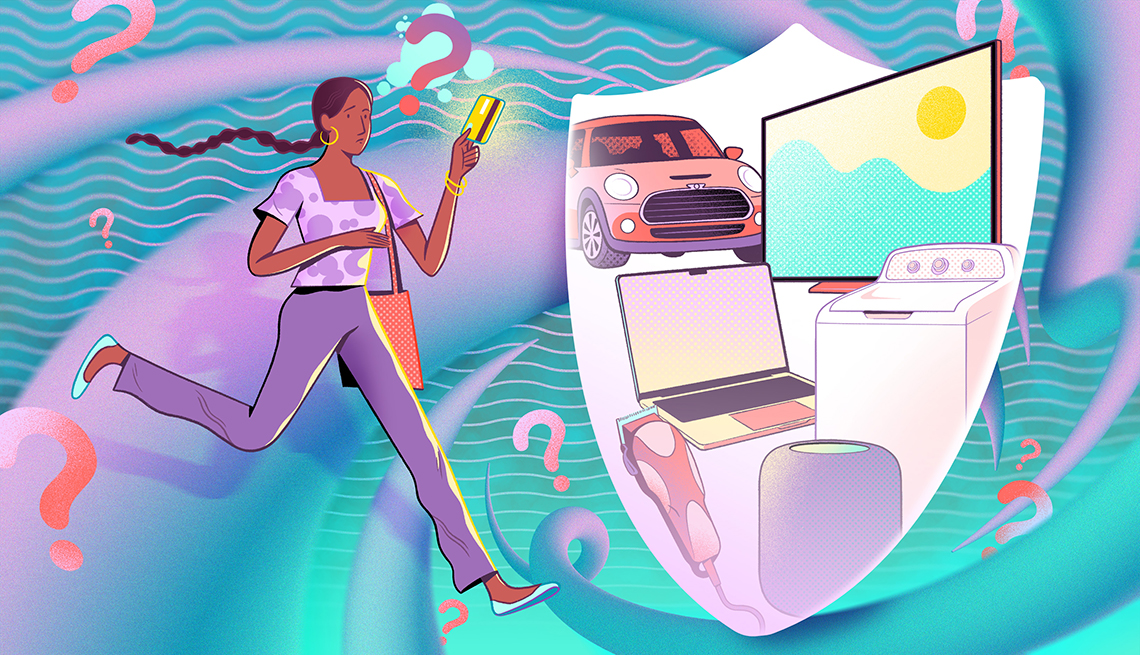AARP Hearing Center
I always feel a tinge of uneasiness when turning down an offer to buy an extended warranty. We’ve all experienced the agony of a product failure and the defeat of an expensive repair bill, and extended warranties seem to offer peace of mind.
Nowadays they’re hawked all over the internet, not just at places like electronics stores and auto dealerships. Amazon, Best Buy, Target, Walmart and other websites sell them as purchase add-ons for even cheap stuff like $30 hair trimmers. The cost for these policies can range from a few bucks to thousands.
But does it really pay to buy an extended warranty? I had many questions, so I talked to experts and looked for answers. After doing that research, I came to a decision about buying extended warranties — but you’ll have to read on to find out.
What is an extended warranty?
A warranty is simply a promise that the company will stand behind its product, according to the Federal Trade Commission (FTC). So if, for example, your vacuum cleaner breaks within the warranty period, the company is committed to repairing or replacing it. Most products come with a free manufacturer warranty that covers a modest length of time, often a year or two. An extended warranty — also known as a protection plan or service contract — provides similar guarantees for even more years. These policies cost extra, may have different fine print than a manufacturer warranty and often are sold by a third party rather than the product’s manufacturer.
Why are they being offered so frequently?
Simple: They’re a huge moneymaker. According to the nonprofit Consumers’ Checkbook, stores typically pocket 50 to 70 percent of the cost of warranties, “a profit margin that’s far better than for most products they offer.” Why are they so profitable? A University of Pennsylvania Wharton School of Business study found that consumers overestimate the likelihood of products breaking when covered by an extended warranty. In other words, if people knew the odds that they’d ever need to use these insurance policies, they’d never buy them.









































































